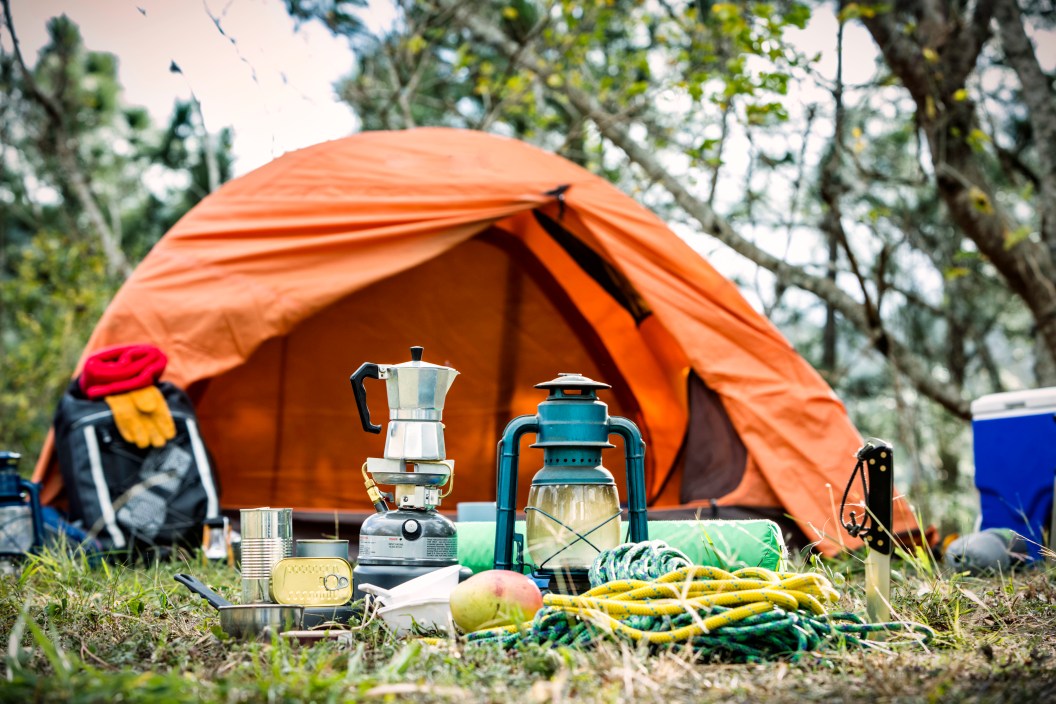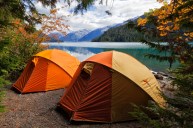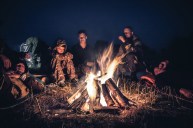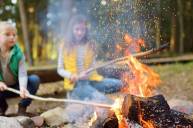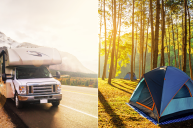Camping for the first time can seem daunting. What camping gear do you need? How—and where—do you set up a tent? What about starting a campfire? And what if it rains? It feels like there's so much to know and a lot that can go wrong when it comes to beginner camping mistakes.
Take a deep breath and remember: Every expert camper started out where you are today. One of the best ways to level up is by learning from the mistakes others have made. You'll avoid turning up at your campsite ill-equipped, and you'll save yourself a lot of headaches by avoiding these common beginner camping mistakes in the first place. You might even fool friends and family into thinking you're a camping pro!
1. Not Making a List (and Checking It Twice)
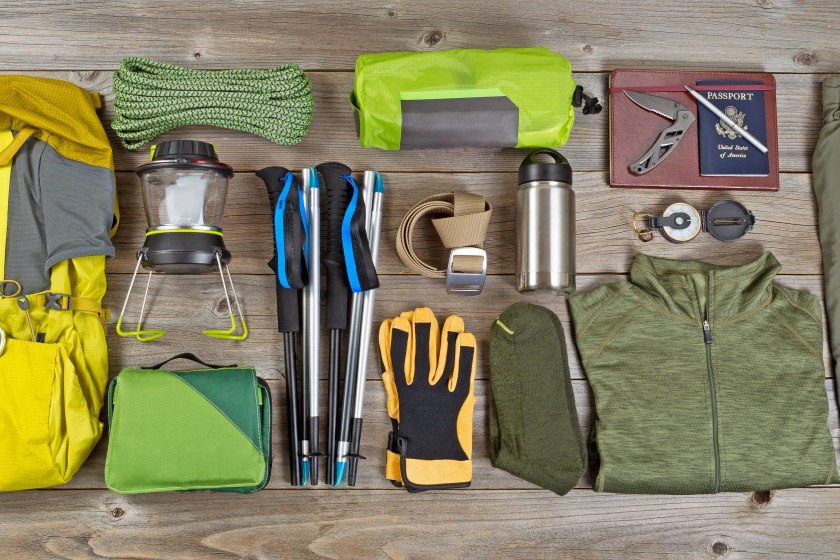
Getty Images, tab1962
Even if you've only dabbled in day adventures thus far, you're no doubt already aware of "Leave No Trace," the seven principles that everyone exploring the great outdoors must abide by. So it should be no surprise that the first beginner camping mistake would be to ignore the first LNT principle to plan ahead and prepare.
When you're camping for the first time, one of the biggest challenges is knowing how to prepare and pack all of the gear you need. Relieve yourself of stress by making a packing list and creating a camping checklist of what needs to be done and the items you need to buy.
Take a cue from the Scouts: It's always better to be overprepared. Even when you've gone over your checklist once, review it again. Double- and triple-check that you have everything before you leave home. It only takes a few minutes, and it will give you peace of mind.
If you forget something, it's not the end of the world. You can either tough it out if it's not an essential item or, if you're in a pinch, head to the nearest town, ask other campers, or figure out a makeshift solution.
Most importantly, you don't make the same mistake again. "My solution is to keep a long camping packing list on my phone and if I realize I've forgotten something while out camping, I'll add to this list," says Robert Johnson, founder of Van Simply, an online resource for van lifers. "Over time, forgetting something important rarely happens."
2. Not Practicing How to Set Up Your Gear
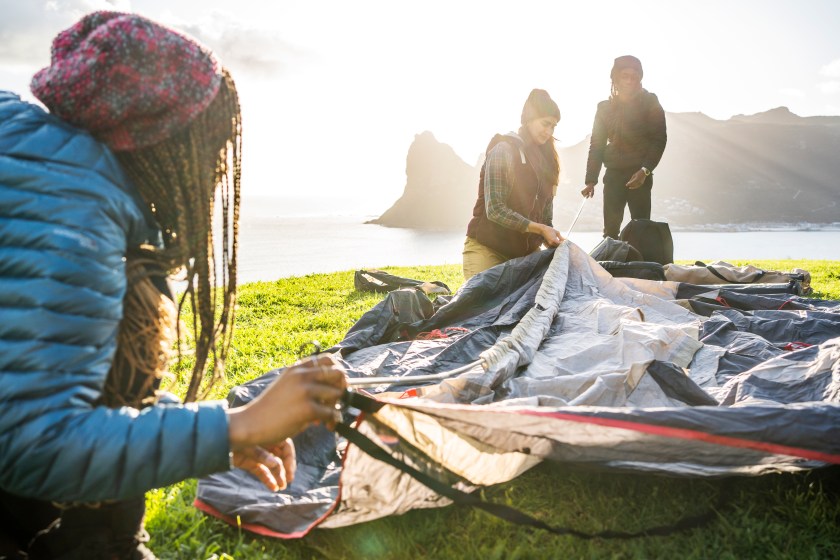
Getty Images, NickyLloyd
Struggling to set up your gear is a dead giveaway that you've never camped before, but it's also one of the easiest mistakes you can prevent. Once you've got all your camping equipment, practice assembling it at home. By doing this, you'll also be able to account for all the pieces and ensure that everything works.
Lay out your tent, get familiar with the various parts, and put it up. Do it outside if you can so you understand how to contend with it in a breeze. Make sure you know how to work your camping stove—do you know how to attach the fuel canisters? How to light it?
Try out your lantern, sleeping bag, sleeping pad, and other equipment, too. The more comfortable you become with your gear, the more confidence you'll have at the campsite.
3. Not Knowing How to Build and Put Out a Campfire
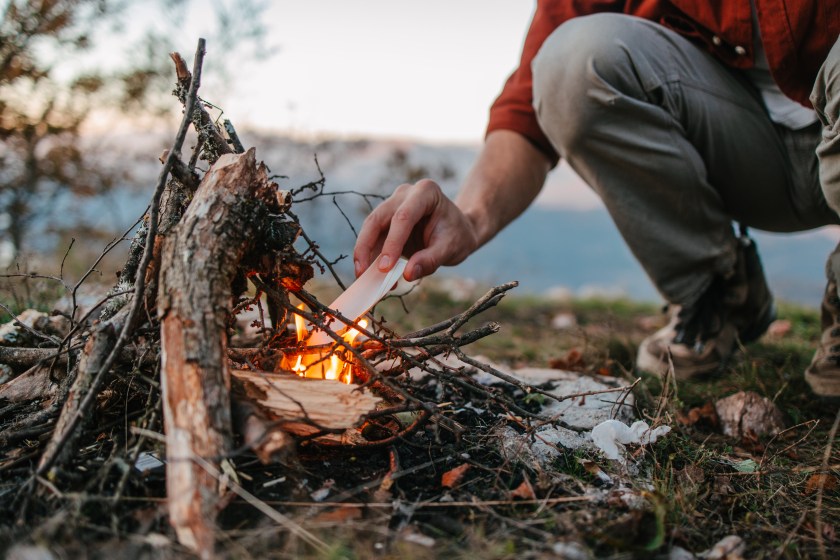
Getty Images, Vuk Saric
Knowing how to build a campfire and extinguish it safely are basic survival skills that'll also make you look like a pro. Nothing is more frustrating than struggling to get a campfire started; and if you don't know how to put it out, you could start a forest fire.
With the right techniques and knowledge, you'll be able to get a fire started, grow and sustain it, and prevent it from getting out of control.
4. Relying Too Much on a Campfire
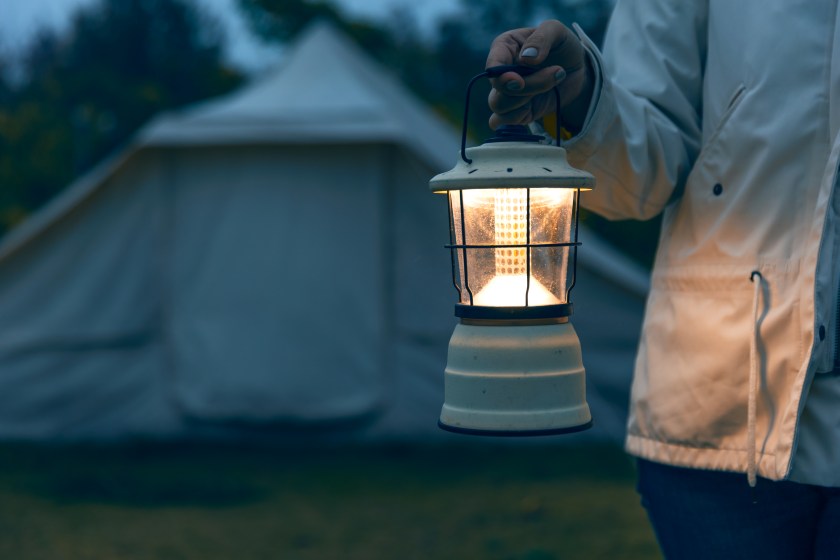
Getty Images, zhang meng
Once you know how to start and maintain a campfire, make sure you don't over-rely on it to stay warm, fed and have light. Why? Some areas have fire restrictions that prohibit all campfires (which you should learn in advance as part of your research). If it rains, your firewood could get wet and be unusable, or you might just have underestimated how much firewood you'd need. Any of these situations can result in a cold, hungry, and unhappy campout.
Instead of using a campfire for cooking, a propane stove is less finicky and cooks your food faster. For more reliable sources of light and heat, bring battery-powered headlamps and lanterns (and extra batteries), and dress in warm layers.
Out in the wilderness, it's extremely important to take care of your basic needs. The last thing you want on your first camping trip is to feel weak and tired from improper nourishment or even to develop hypothermia.
5. Not Telling Others Where You're Going
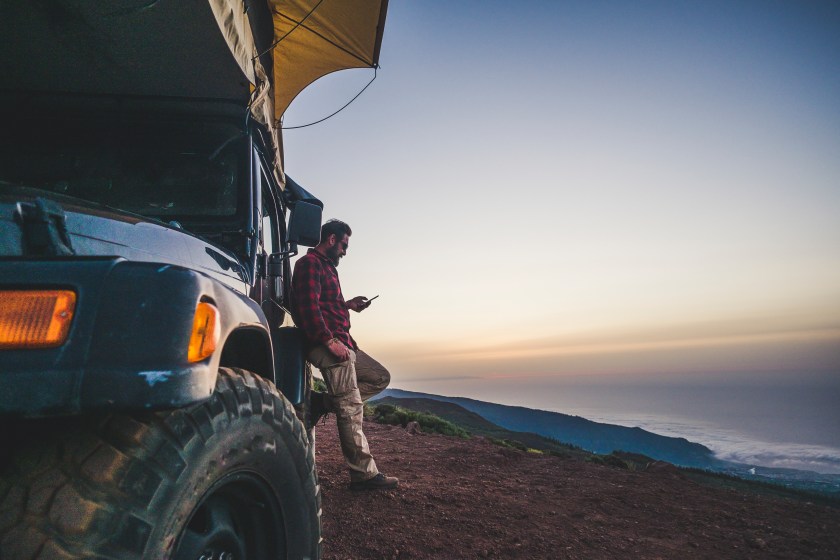
Getty Images, simonapilolla
Whether you're car camping, primitive camping, camping alone, or going with others, you should always tell someone who's staying home where you're going and when you'll be back. Although camping is a relatively safe activity, especially if you're at a designated campsite, things can happen.
When you're off the beaten path, you may have spotty cell service or none at all, so you can't count on being able to reach out for help. By sharing your plans with friends or family, they'll know when they should hear back from you. And if they don't, they'll know where to look.
6. Not Having an Offline Map
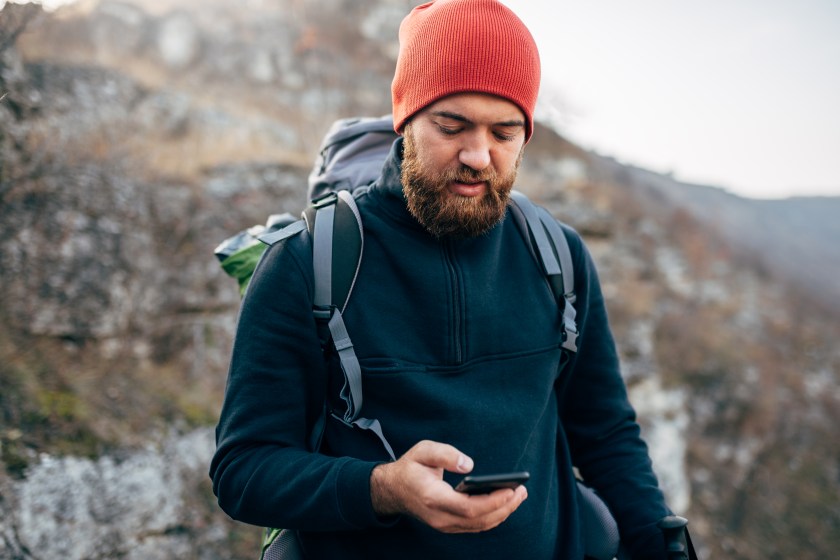
Getty Images, Yuricazac
Before you hit the road, download offline maps and the appropriate apps to avoid getting lost and wasting time. When traveling to your campsite, you won't know when or if you'll lose cell signal. It's best to be prepared with an offline map so you can make it to the campground before dark (see Mistake No. 8) and find nearby stores or gas stations.
While Google Maps has offline maps you can (and should) download, they're best used for driving. Hiking apps such as AllTrails or Gaia GPS help you plan an off-road route to the campsite or day hikes around it and understand what you're in for in terms of distance, elevation gain, and expected time so you can make sure you're prepared with the right gear and enough food and water. Getting lost without a cell signal is potentially dangerous, and it's even more dangerous when you've run out of sustenance. Before you head off, share your planned route with friends and family, too.
If you get lost, some apps have location sharing, which lets you broadcast your live location to others—but only when you're in cell service. Hiking safety app Cairn shows you where there's cell coverage on the trail and automatically alerts your emergency contacts when you've taken longer than expected to finish a route.
7. Not Checking the Weather Before You Go
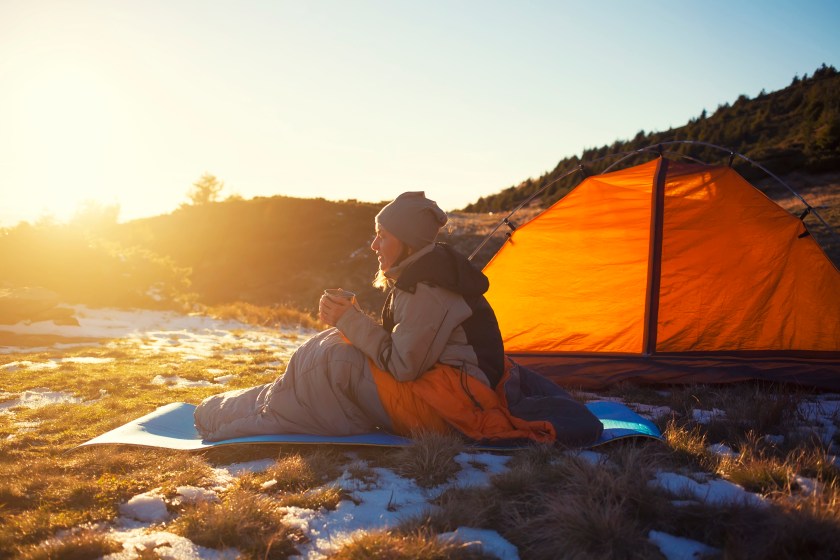
Getty Images, zhukovvvlad
How prepared you are for the weather will determine how much you enjoy your first camping experience. It's miserable (and possibly dangerous) when you're shivering because you didn't pack enough layers or when you're soaking wet because you didn't know it was going to rain. Before you go, look up the weather forecast and make a note of the high and low temperatures, whether there will be rain or snow, and if it'll be windy—and pack your clothing accordingly.
Mornings and nights will be the coldest, so you'll need layers that you can pile on or shed. If it's going to rain, bring quick-drying clothes, waterproof shoes or hiking boots, and a high-quality rain jacket or poncho.
Another beginner camper mistake is to overlook whether they have the right sleeping equipment for the temperatures they'll experience. That's something travel blogger Hanna Ashcraft of Moderately Adventurous learned the hard way on her trip to Joshua Tree National Park in January. She looked up the high and low temperatures in advance, "but I didn't expect how wrong my sleeping pad was," she says. "Each night, the cold seeped in from below." Even though she wore all her layers, she wasn't able to sleep and cut her trip short after the second night.
"Upon doing a little research, I quickly discovered the importance of the R-value, which is a measure of thermal resistance," she says. "Now I have a sleeping pad with an R-value of 6.9 and sleep like someone who doesn't have a care in the world, regardless of the weather."
Besides your sleeping pad, choose a sleeping bag that has the right temperature rating to withstand the lowest temperature you'll experience.
8. Arriving After Dark
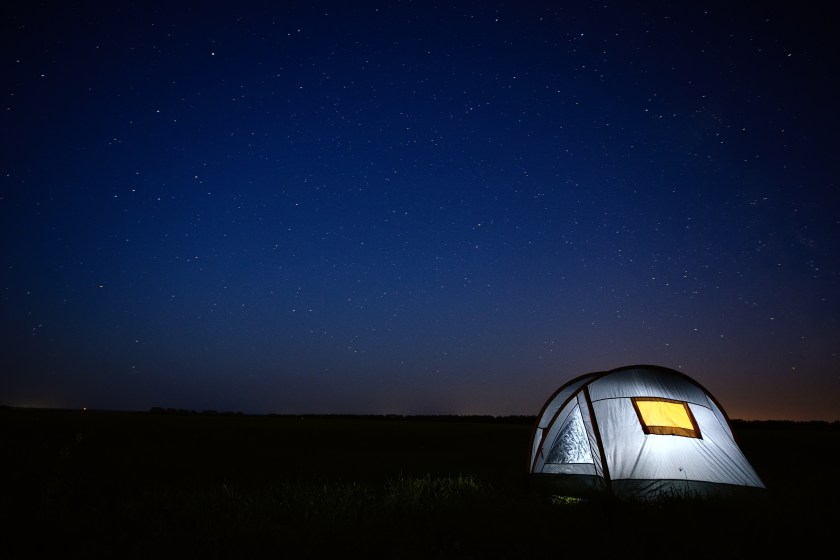
Getty Images, Aleksdem
You never want to arrive at your campground at night. Setting up in the dark becomes twice as difficult, according to Dan Yates, founder of the UK-based outdoor travel booking site Pitchup. On one trip, it took him longer than planned to get to his destination; and not only did he arrive in the pitch dark, but he also made Mistake No. 2: He hadn't practiced setting up his new tent. "Putting up a six-man tent straight out of the package in the light of the headlights, while all the other campers were getting angry watching, isn't an experience I want to repeat," he says.
Get to the campground as early as possible to give yourself plenty of time to get settled and figure everything out. You don't want to be rushed when you're setting up. You'll be able to easily survey your campsite and determine the best place to set your tent (see Mistake No. 9). If you realize you forgot something, you'll also have time to drive to the nearest town to pick up supplies.
9. Choosing Your Tent Site Poorly
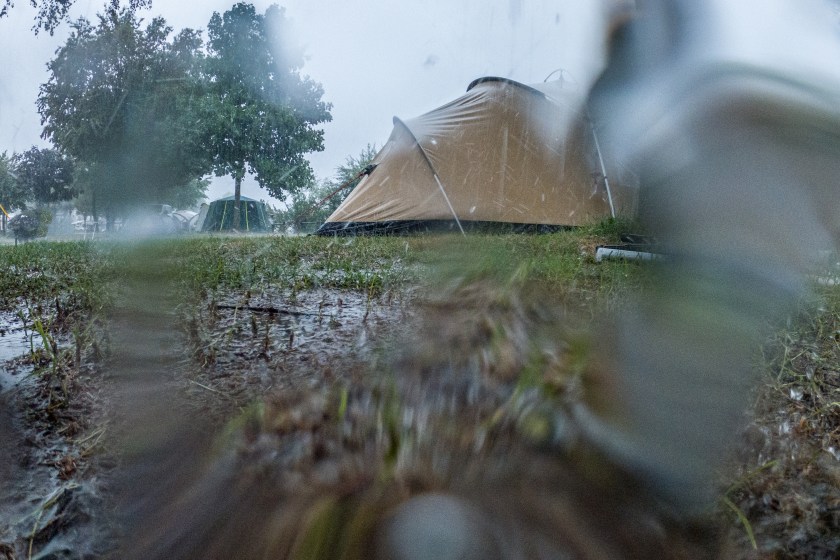
Getty Images, Mystockimages
Where you pitch your tent is important for your comfort and safety, a hard-learned lesson of Gretchen Stuppy Carlson, founder of the travel blog Chasing ADVNTR, when she and her family returned after a heavy rainstorm and found their tent and camping gear floating. "When we set our tent, we overlooked that it was sitting in a bit of a low area with no drainage that became a large puddle when it rained," she says. "Since then, we always put our tent on a high area in the camping site."
Pick an area that's a "durable" surface (according to Leave No Trace); on dry, high, and flat ground; and at least 10 feet away from where you'll build the campfire. If there's no flat area, orient your tent with the door perpendicular to the hill. Sleep with your head at the top of the hill and, if needed, place your bags at your feet to keep you from sliding (and them from sliding into you).
10. Not Protecting Food From Bears
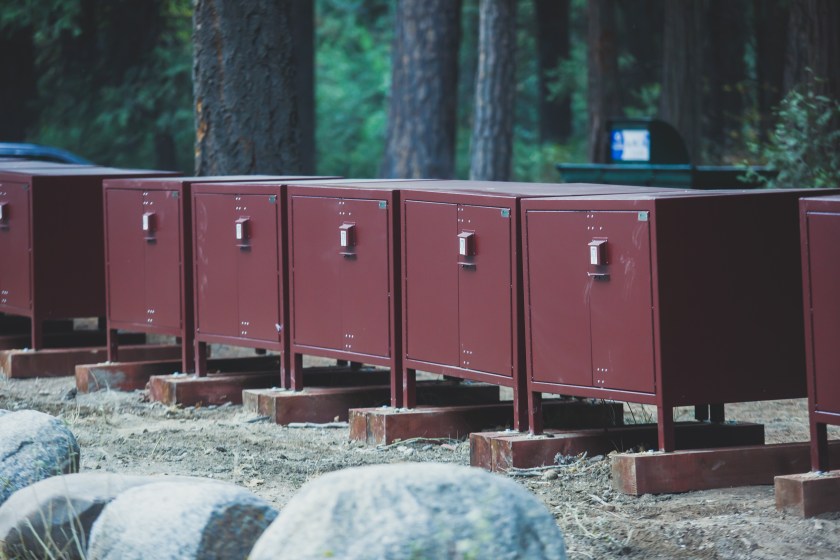
Getty Images, Nikolay Tsuguliev
You may not be the only one who thinks the snacks you brought are tasty. "Unfortunately, bears like chocolate, too," says Megan, who writes the blog at Let's Jet, Kids! Her husband didn't want their candy bars to melt, so he packed them in the cooler and set it in the creek next to their campsite. The next morning, they woke up "to a ransacked cooler and a pile of candy wrappers."
Finding a bear chowing down at your campsite or a raccoon rummaging through your backpack can make a good story, but it can also negatively change the way animals behave around humans—which is why "Respect Wildlife" is also part of Leave No Trace.
Where bears are a problem, campsites will often have a metal bear box for your use. Stow all your food, cooking equipment, and any items that emit a scent in the bear box whenever you leave your campsite and during the night—or in your car, if a bear box isn't available. If you're backcountry camping in an area with bears, you'll need to either bring your own bear canister or hang your food up in a tree.
11. Not Planning Your Meals Ahead of Time
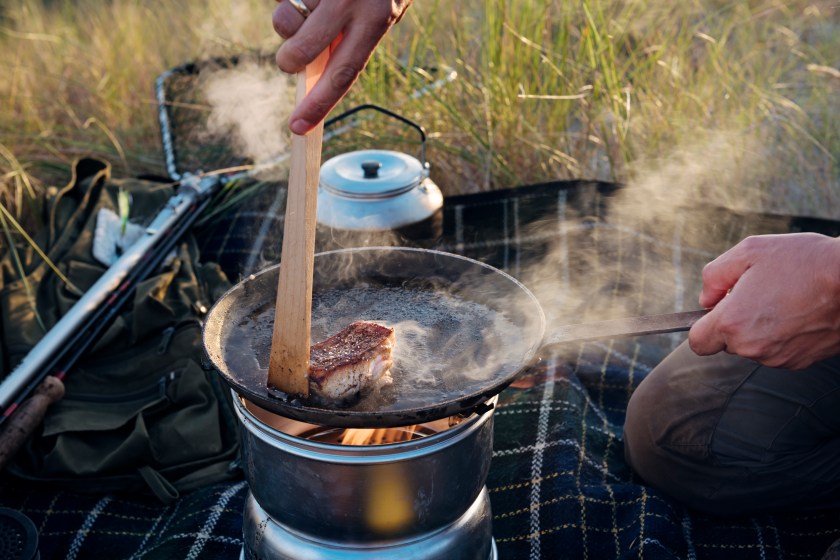
Getty Images, ClarkandCompany
Just because you're out in the wilderness doesn't mean you must subsist solely on trail mix. With a camping meal plan and shopping list, you'll know exactly how much food you need—and you'll actually enjoy having it.
Determine what you'll be eating for breakfast, lunch, dinner, and snacks, and create a shopping list. Also take into consideration that you'll be exerting more energy than usual by hiking, swimming, or doing other physical activities, so you may want to bring extra.
12. Not Bringing Enough Water
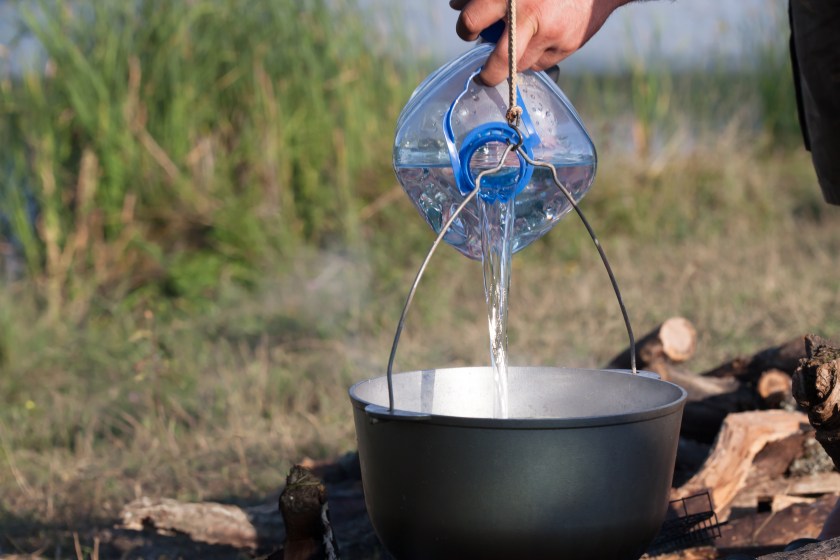
Getty Images, eugenesergeev
Severe dehydration can be deadly, so bring plenty of water. When figuring out how much water you need, the National Park Service recommends bringing 2 or more liters of water a day per person. You also need to factor in how hot it's going to be and what activities you'll be doing. If it's summer and you'll be hiking, running, or swimming, increase that amount up to 3 or even 4 liters.
But don't forget that water isn't just for staying hydrated. You also need it for cooking, cleaning, and brushing your teeth. For these activities, a good rule of thumb is to bring an additional 1 gallon per person per day.
If the campground has water, research if it's safe to drink. In that case, you can bring less water if there's a place to fill up. But if the water isn't potable, you'll need to either boil it or use a water filter.
13. Leaving Behind a Mess
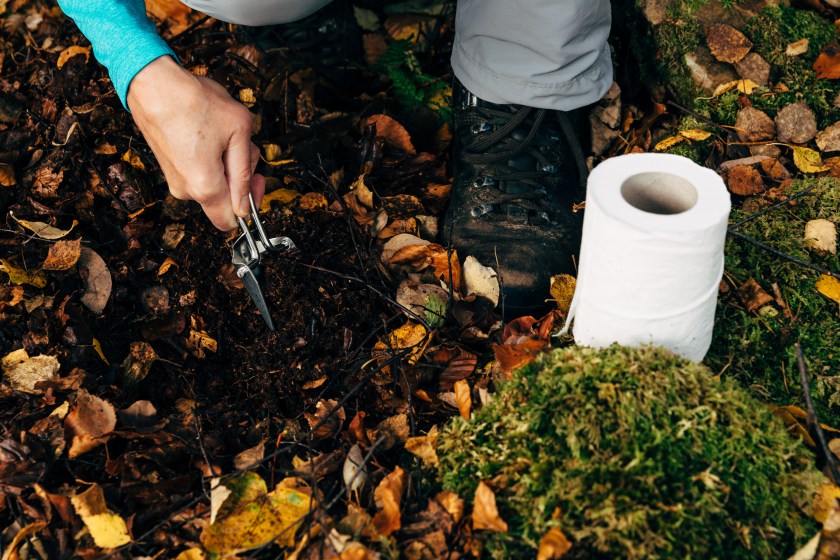
Getty Images, lucentius
At its core, Leave No Trace literally means leaving your surroundings the way you found them so you'll ensure that future generations can enjoy these beautiful spaces as much as you did.
Whatever you bring in, expect to bring it out and dispose of it properly. Some campgrounds have trash bins for your use—use them. If your campground doesn't, take your trash home and throw it away there.
The "dispose of properly" edict goes for the waste that comes from your body as well. If your campground doesn't have bathroom facilities, make sure you understand how to dig a cathole and consider bringing a bathroom kit, such as the one made by PACT Outdoors.
